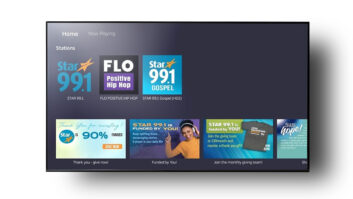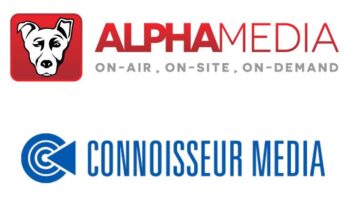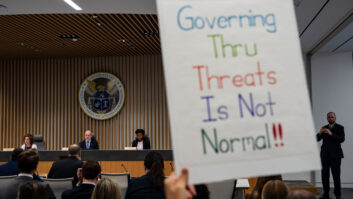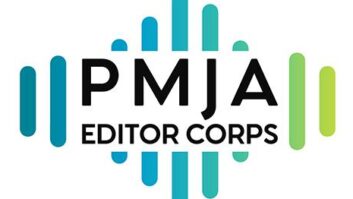One of the more significant themes that’s arisen from the Quadrennial Review discussion looks beyond competition and market forces and presses the Federal Communications Commission to reframe the conversation entirely.
The focus should be on ownership diversity, said broadcasters and organizations like Urban One; the Multicultural Media, Telecom and Internet Council; the National Hispanic Media Coalition and other social justice and minority-driven organizations; and the National Association of Black Owned Broadcasters.
In its comments to the FCC, Urban One said that promoting ownership diversity should be a primary goal, with program diversity as a complementary goal. Urban One said it stands at odds against the proposal led by the National Association of Broadcasters, which has pressed the FCC to deregulate radio ownership limitations in smaller markets and substantially increase consolidation in larger markets.
[Read: NAB to FCC: Revise Ownership Rules to Support Radio]
“[T[here are no public or consumer benefits to further radio deregulation,” said Urban One, a licensee that owns or operates 54 broadcast stations in 15 urban markets and was formerly known as Radio One Inc.
“Urban One supports keeping the current radio ownership regulations in place as they will continue to foster service to the public, diversity of ownership and a competitive radio market landscape that would be at risk of being forever lost should the ownership of multiple radio stations be allowed without any FCC restraints,” said the organization.
The organization echoes comments made by the MMTC, which said the FCC’s priority should be on welcoming new voices rather than focusing on the lifting of local ownership caps.
The importance of diversity is also a priority for the NHMC and several other joint filers. Though the organization said in its comment filing that the FCC has a Congressional mandate to promote diversity of media voices, the NHMC said the number of minority broadcasters “remains abysmally low” — 2.6% of television stations and 5% of local radio stations. “[This] does not represent the nearly 40% of the U.S. population made up of people of color,” the NHMC said.
The NHMC suggested that instead of singling out three rules to analyze as part of the Quadrennial Review (including that of local radio ownership), the commission needs enhanced rules.
“In order to modernize ownership limits to address today’s unprecedented levels of concentration, new enhanced rules are needed, including rules designed to break up the rise in cross-ownership of video service providers, broadband providers and online information services,” the NHMC said.
[Read: Relaxing Local Ownership Caps Would Harm AM Radio, Says MMTC]
Cross-ownership amplifies power far more than simple aggregate figures suggest, the organization said. “Limiting cross-ownership provides a much greater likelihood of individuals in different demographics receiving information from diverse and unaffiliated sources,” the NHMC said.
The organization called on the commission to abandon proposals that further homogenize the market and instead recommit to promoting media diversity. “It is imperative for a healthy democracy and equal representation that media ownership reflects the diverse makeup of the American population,” the organization said.
“Here is a momentous opportunity before this commission to reverse its course, begin to make amends for past harms, and finally choose the right side of history,” the NHMC said.
The organization also suggested the commission revamp its minority tax certificate and abandon its tradable diversity credits proposal, which the NHMC called “misguided” and a “dehumanization tactic.”
Similar sentiments were submitted by the NABOB, which said it opposes any changes to the commission’s broadcast ownership rules. It particularly stands against any changes to the local radio ownership rule because most existing African American broadcast property owners are radio station owners. “Increased consolidation of ownership in the broadcast industry reduces opportunities for minorities to enter the business or to grow,” the NABOB said.
Comments submitted in regard to the Quadrennial Review process can be found at the FCC’s ECFS database using Media Bureau Docket Number 18-349.
[Subscribe to our newsletter and get it delivered right to your inbox.]






